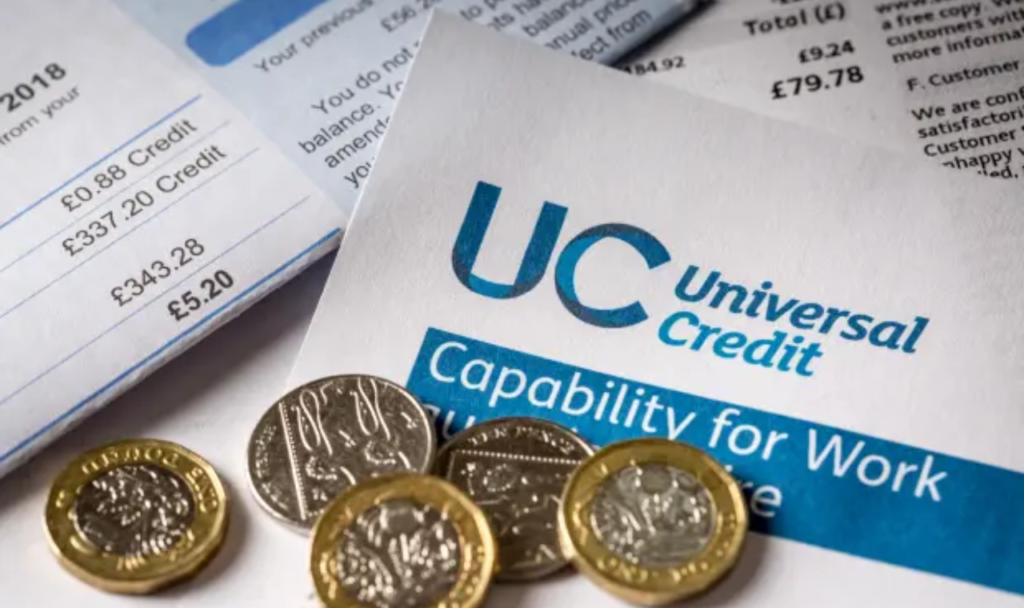Universal Credit payments have increased in 2024, providing much-needed financial relief to millions of UK residents. However, contrary to some misleading reports, claimants will not receive an additional £578.82 per month. Instead, Universal Credit payments have risen by 6.7% from April 2024, in line with inflation.
This article explains who benefits from the increase, how much you could receive, and how to check your eligibility.
Universal Credit Increase in 2024
As part of the UK government’s cost-of-living measures, Universal Credit payments have been uprated by 6.7%, reflecting inflation rates. The new payment structure means that claimants will see an increase in their monthly allowances.
For example, before April 2024:
- The standard monthly allowance for joint claimants aged 25 and over was £578.82.
- For single claimants over 25, it was £368.74.
From April 2024, these amounts increased to:
- £617.60 for joint claimants aged 25 and over.
- £393.45 for single claimants over 25.
While this increase is significant, it does not mean an extra £578.82 per month for all claimants. Instead, it is an adjustment in line with inflation to support low-income individuals and families.
Who Is Eligible for the Increased Universal Credit?
Universal Credit is designed to assist people who are:
- On low incomes.
- Out of work.
- Unable to work due to a disability or health condition.
To be eligible, you must:
- Live in the UK.
- Be aged 18 or over (some exceptions apply for 16-17-year-olds).
- Have less than £16,000 in savings.
Your payment amount depends on factors such as:
- Whether you are single or in a couple.
- If you have children.
- Whether you have a disability or health condition affecting your ability to work.
- Your housing costs.
To check your eligibility and how much you could receive, visit the official UK government website: www.gov.uk/universal-credit/eligibility.

Additional Payments for Certain Claimants
Some claimants may receive additional payments on top of their standard Universal Credit allowance. These include:
1. Child Element
If you have children, you may receive extra support:
- First child (born before April 6, 2017) – Up to £333.33 per month.
- Subsequent children – Up to £287.92 per child per month.
2. Limited Capability for Work and Work-Related Activity (LCWRA)
If you have a disability or health condition that prevents you from working, you may receive an additional £390.06 per month.
3. Carer Element
If you care for a disabled person for at least 35 hours a week, you could get an extra £185.86 per month.
4. Housing Element
Universal Credit can help cover rent payments, but the amount depends on your local housing allowance.
For details on additional elements, check: www.gov.uk/universal-credit/what-youll-get.
How to Apply for Universal Credit
Applying for Universal Credit is straightforward and can be done online. Here’s how:
- Visit the official UK government website – www.gov.uk/apply-universal-credit.
- Provide personal details, including National Insurance number, housing situation, income, and savings.
- Verify your identity online or via a Job centre appointment.
- Attend an interview (if required) at your local Job centre.
When Will You Receive the Increased Payments?
The new Universal Credit rates came into effect in April 2024. If you are already receiving Universal Credit, the increased payment should reflect in your first full assessment period after April. New claimants will automatically receive the updated rates.
Conclusion
The 6.7% increase in Universal Credit payments is a welcome change for millions of UK residents. While some reports misinterpret the figures, the actual increase means higher monthly payments, particularly for couples, parents, and those with disabilities.
To check your eligibility and apply, visit www.gov.uk/universal-credit. If you need further assistance, contact your local Jobcentre Plus or seek advice from organisations like Citizens Advice.

Pankaj Kumar is a journalist at Chandigarh X, covering admit cards, recruitment, and government schemes. His articles provide readers with detailed insights into application processes, eligibility, and exam updates.
Outside of work, Pankaj enjoys traveling, fitness, and cricket, often participating in local matches on weekends.



